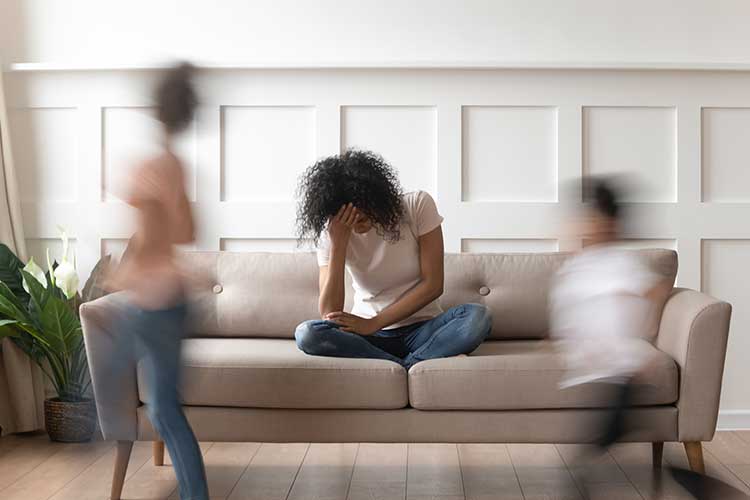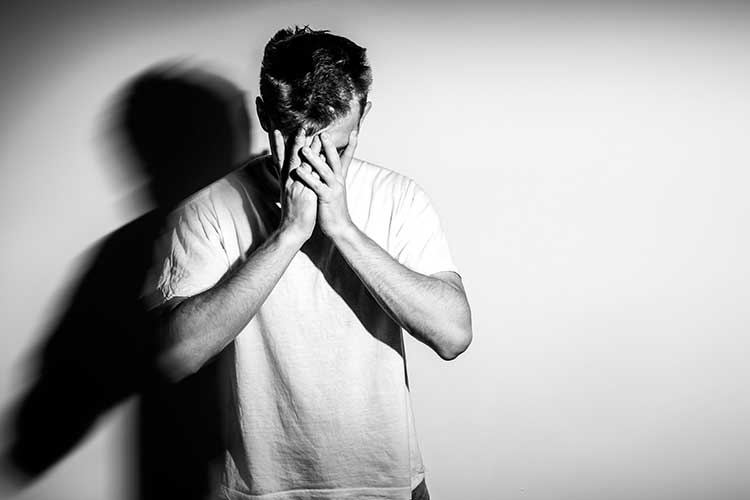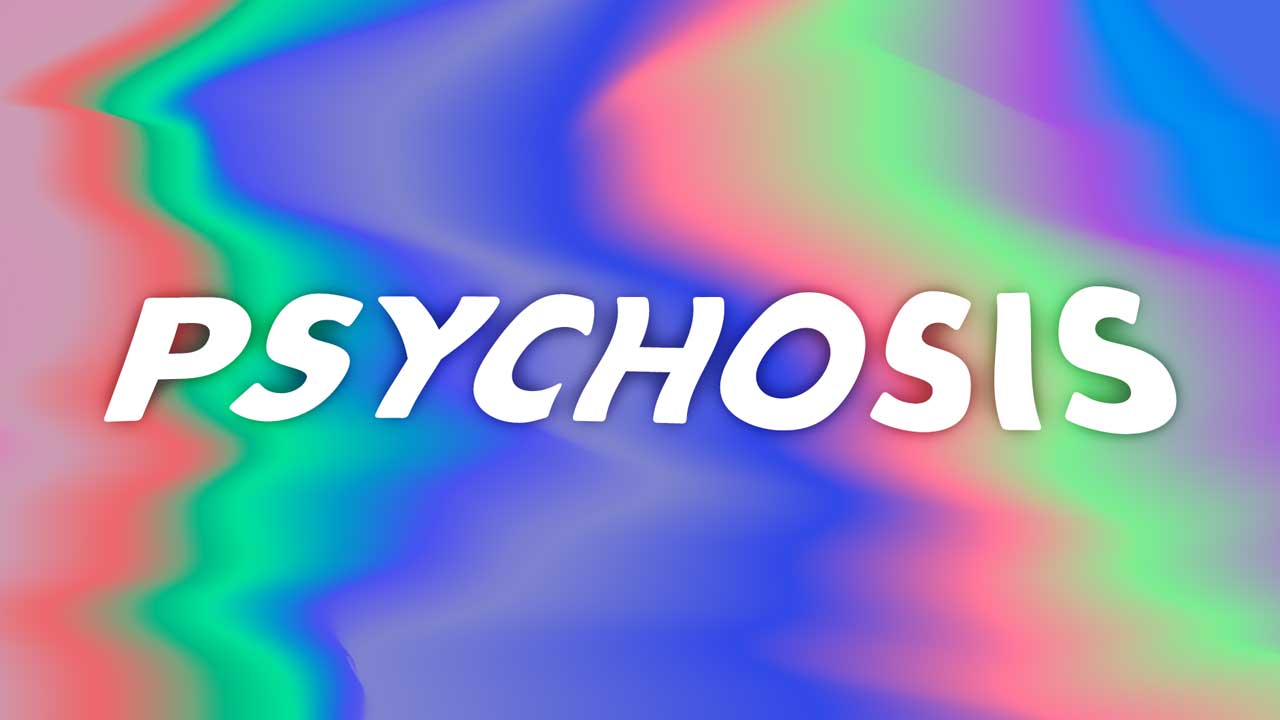In any 12-month period, 1 in every 200 Australian adults will experience a psychotic condition (Healthdirect 2023).
Psychosis occurs when a person loses the capacity to distinguish reality from their imagination (Better Health Channel 2019).
Psychosis sometimes occurs alongside other mental illnesses, such as schizophrenia or bipolar disorders. However, it’s worth noting that up to three-quarters of psychotic experiences do not progress to a diagnosable condition (Headspace 2021).

What is a Psychotic Episode?
In the majority of cases, psychosis is experienced as an ‘episode’. In this period, a person will experience acute symptoms such as delusions and hallucinations.
Often, psychosis begins with general and gradual changes in a person’s thinking and behaviour. These behaviours include trouble with attention and concentration, irritability, depression, anxiety, suspiciousness, insomnia and social withdrawal, and often cause trouble at work or school (SANE 2022).
When Does Psychosis Typically Occur?
Psychosis typically manifests in teenage years or early adulthood (Better Health Channel 2019).
Psychosis and Stigma
There is a false public perception that people with psychosis are more likely to be violent than others. This idea permeates popular media such as television and film and has created a highly damaging and inaccurate idea of this condition (Peterson 2020).
The most effective way to reduce stigma is to educate yourself and others on this illness.
The Warning Signs of Psychosis
The following can be viewed as possible warning signs of psychosis. Keep in mind it can be difficult to distinguish this from typical teenage or early adult behaviour:
- A decrease in performance at work or school
- Difficulty concentrating or thinking clearly
- Feeling suspicious or uneasy around other people
- Poor self-care or hygiene
- Spending an excessive amount of time alone
- Displaying strong, inappropriate emotions or no emotions at all
(NAMI 2024)

It’s crucial that someone experiencing these signs seeks prompt medical advice. It can be difficult to convince someone who is experiencing psychosis to seek help due to the nature of the condition and its association with feelings of fear, anxiety and unease (NAMI 2024).
Common Symptoms of Psychosis
Psychosis can include a range of symptoms but often includes one of these two experiences:
Hallucinations
Hallucinations include seeing, hearing or feeling things that are not there. Examples are:
- Hearing voices (auditory hallucinations)
- Experiencing strange sensations or unexplainable feelings
- Seeing glimpses of objects or people that are not there or are distortions of reality.
(NAMI 2024)
Delusions
Delusions are strong beliefs that are unlikely to be true and will seem irrational to others. Examples are:
- Believing external forces are controlling or manipulating their thoughts, feelings or behaviours
- Interpreting minor comments, events or objects as having personal meaning or significance
- The person believing that they have special powers, are on a special mission or that they are God.
(NAMI 2024)
Psychosis can also include symptoms such as:
Confused thinking
Everyday thoughts can become difficult to comprehend, and thoughts and speech may seem slowed or mixed up. A person may find it difficult to concentrate, follow a conversation or remember things (Headspace 2021).
Changed emotions
A person may feel confused and alienated from their environment. They may appear to feel less emotion or show less feeling to those around them (Headspace 2021).
Changed behaviour
A person may have bursts of energy or find it difficult to get things done. They may laugh at inappropriate times, or become angry or upset without obvious reason. They might stop doing things that once brought them joy, such as spending time with friends and family. They may seem excited, depressed or irritable without reason (Headspace 2021).

What Causes Psychosis?
Several factors are thought to contribtue to psychosis, though the exact causes are still unclear:
- Genetic vulnerability: A family history of psychosis can contribute to the development of psychosis.
- Trauma, loss and grief: Witnessing a traumatic event such as death, war or sexual assault can trigger a psychotic episode.
- Substance use: The use of marijuana, LSD, amphetamines and other substances can increase the risk of developing psychosis.
- Physical illness or injury: Traumatic brain injuries, brain tumours, strokes, HIV and some brain injuries such as Parkinson’s disease, Alzheimer’s disease and dementia can sometimes cause psychosis.
- Mental health conditions: Sometimes psychosis is a symptom of a condition such as schizophrenia or bipolar disorders.
(NAMI 2024; Better Health Channel 2019; Headspace 2021)
Diagnosing Psychosis
A general practitioner (GP) will assess the person’s symptoms to confirm psychosis. They may also refer a person to a psychiatrist for full diagnosis and treatment.
Psychosis is sometimes diagnosed as part of another illness such as schizophrenia or bipolar disorders. This diagnosis can change over time (SANE 2022). The presence of psychotic symptoms does not automatically mean that someone has a psychotic illness (Better Health Channel 2019).
Treatment for Psychosis
Psychosis is a treatable condition. Several types of therapy have successfully helped people living with psychosis to manage their condition.
Treatment for psychosis typically involves:
- Specialist psychotherapy
- Antipsychotic medication
- Counselling or community support groups
- Practical support, such as getting help getting back to work or school.
(Headspace 2021; Better Health Channel 2019; ReachOut Australia 2023)
Treatment for psychosis may take many years. In that time, treatment can change according to the needs of the person (SANE 2022).
If you’re in crisis and need support, call Lifeline on 13 11 14. Lifeline is open 24 hours a day, 7 days a week.
Test Your Knowledge
Question 1 of 3
Which one of the following is NOT a symptom of psychosis?
Topics
Further your knowledge
 Free
Free
 Free
Free Free
FreeReferences
- Better Health Channel 2019, Psychosis and Mental Illness, Victoria State Government, viewed 27 February 2025, https://www.betterhealth.vic.gov.au/health/conditionsandtreatments/psychosis
- Headspace 2021, What is Psychosis & The Effects on Mental Health, Headspace, viewed 27 February 2025, https://headspace.org.au/explore-topics/for-young-people/psychosis/
- Healthdirect 2023, Psychosis, Australian Government, viewed 27 February 2025, https://www.healthdirect.gov.au/psychosis
- National Alliance on Mental Illness 2024, Psychosis, NAMI, viewed 16 February 2023, https://www.nami.org/About-Mental-Illness/Mental-Health-Conditions/Psychosis
- Peterson, A 2020, ‘Why Stereotypes About Psychosis Are Harmful’, NAMI Blog, 8 October, viewed 27 February 2025, https://www.nami.org/Blogs/NAMI-Blog/October-2020/Why-Stereotypes-About-Psychosis-Are-Harmful
- ReachOut Australia 2023, What is Psychosis?, ReachOut Australia, viewed 27 February 2025, https://au.reachout.com/articles/what-is-psychosis
- SANE 2022, Psychosis, SANE, viewed 27 February 2025, https://www.sane.org/information-and-resources/facts-and-guides/psychosis
 New
New 
